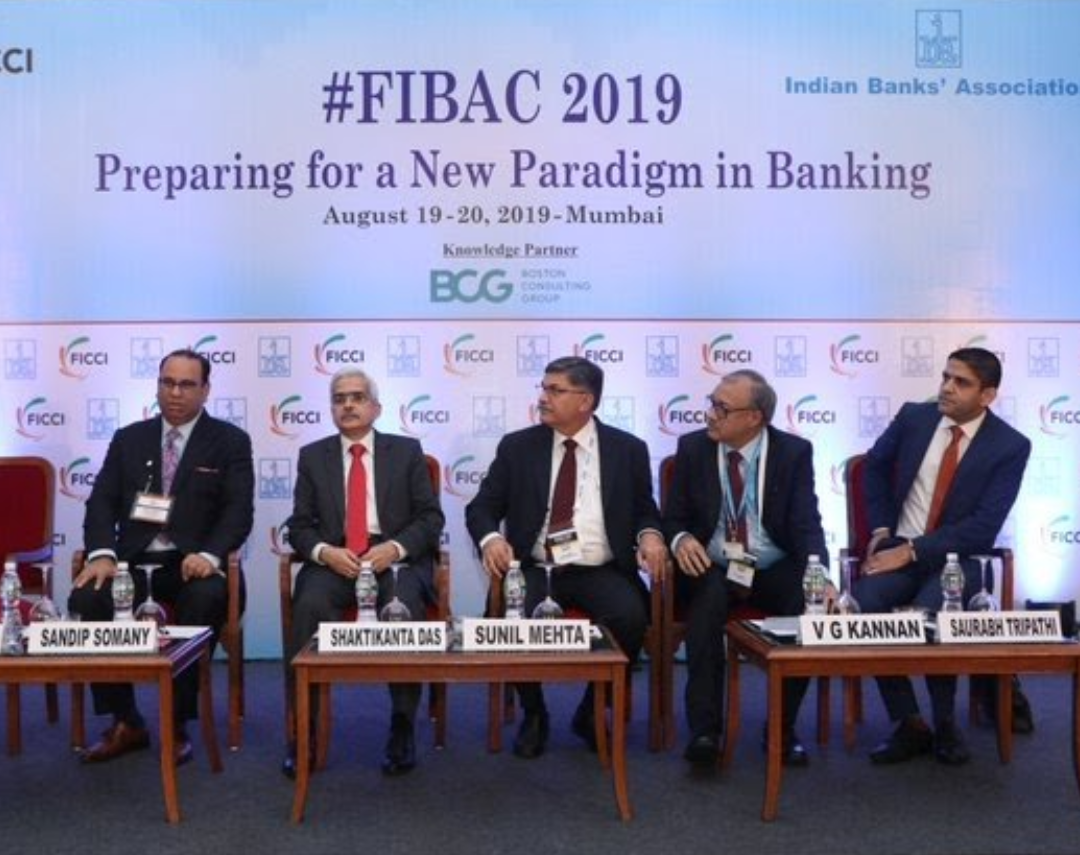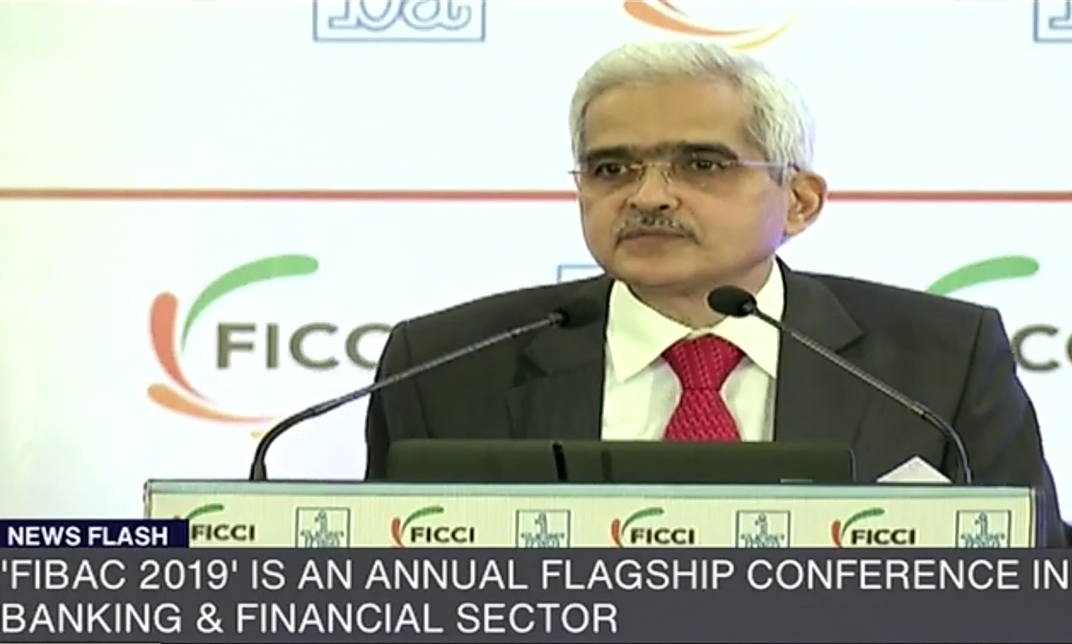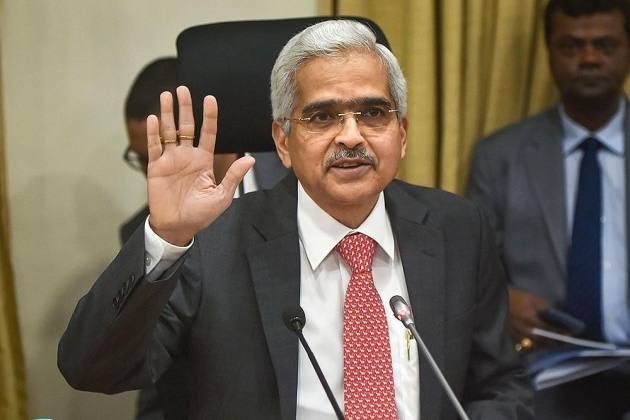 MUMBAI, 19 AUGUST 2019 (GPN): Reserve Bank of India Governor Mr Shaktikanta Das today inaugurated FIBAC 2019, the Annual Banking Conference, jointly organised byFederation of Indian Chambers of Commerce and Industry (FICCI) and Indian Banks’ Association (IBA). In his inaugural address, Mr Das observed that although growth takes the highest priority at this juncture in the country’s economy, financial stability is very important to sustain long term growth.
MUMBAI, 19 AUGUST 2019 (GPN): Reserve Bank of India Governor Mr Shaktikanta Das today inaugurated FIBAC 2019, the Annual Banking Conference, jointly organised byFederation of Indian Chambers of Commerce and Industry (FICCI) and Indian Banks’ Association (IBA). In his inaugural address, Mr Das observed that although growth takes the highest priority at this juncture in the country’s economy, financial stability is very important to sustain long term growth.
“Today we are all aware that there are challenges which the business community is dealing with in the real economy; there are global headwinds emanating from issues like trade tensions, geopolitical tensions and several other things happening around the world; and there are challenges which the Indian banking sector is also encountering,” he said.
 Speaking about the resolution of the Monetary Policy Committee, Mr Das recalled that the Committee specifically mentioned that growth is the highest priority. RBI has taken a number of steps to inject growth impulses in the country. “Having said that growth is a matter of highest importance, it is also important to look at issues of financial stability, because long term growth can be sustained only by stability of the financial sector.” Hence the focus of the RBI and the Government are to allocate economic resources efficiently, manage financial risk and ensure that industry has the capability of performing even in the presence of external financial shocks.
Speaking about the resolution of the Monetary Policy Committee, Mr Das recalled that the Committee specifically mentioned that growth is the highest priority. RBI has taken a number of steps to inject growth impulses in the country. “Having said that growth is a matter of highest importance, it is also important to look at issues of financial stability, because long term growth can be sustained only by stability of the financial sector.” Hence the focus of the RBI and the Government are to allocate economic resources efficiently, manage financial risk and ensure that industry has the capability of performing even in the presence of external financial shocks.
RBI Governor pointed out that today the Indian banking system is more resilient to economic shocks. “Aspects of non-bank financial intermediation that contributed to the financial crisis have declined. However, the implementation of reforms is not yet complete and remains uneven, especially in the non-banking space.”
He cautioned the gathering that weaker than expected growth is one of the key risks in global financial stability. The cardinal principle, he said, is that “the regulator never sleeps.” They need constantly to be vigilant and take proactive steps. Excessive credit growth, maturity mismatches and liquidity issues, high proportion of non-performing loans and over-leveraging are some of the factors that can pose an overall systemic risk even if individual institutions are robust. These aspects become very important as India marches towards becoming a $5 trillion economy.
He also mentioned that the NBFC sector complements the banking sector and is a bridge for last mile connectivity. The entry of non-traditional and digital players is creating a web of inter-linkages that RBI is keeping close watch on. RBI is taking proactive steps to strengthen the sector.
He further observed that some banks have announced that they are linking their lending rates with the repo rate with respect to new loans. “Our expectation is that they should move faster,” he said. RBI is also endeavouring to ensure adequate liquidity in the system to meet the production requirements of the economy. The risk weights that banks attach to loans have reduced from 125 per cent to 100 per cent. This is bringing them closer to the Basel norms that prescribe 75 per cent.
Finally, he called upon bankers to be positive and optimistic amidst the challenges they face. He observed that the global economy is running into severe headwinds. “India cannot be an exception,” he said, appealing to the leaders of the business and financial fraternity to focus on the opportunities that lie ahead.
During the conference, Mr Das also launched the FIBAC Knowledge Paper and web tool.
Mr Sunil Mehta, Chairman, IBA and MD and CEO, Punjab National Bank, explained that the theme for the conference was ‘Preparing for a New Paradigm in Banking’. FIBAC has always focused on relevant themes, he said. “Since change is the only thing constant, preparing for a new paradigm in banking is quite apt.” Financial services are being revolutionised by the onset of digitisation. The challenge for banks is that while financial literacy has gained momentum, digital literacy has still to take hold. Cyber security remains another concern. “Growth in cyber security is greater than all other frauds.” There is need for a dedicated grievance mechanism. India is one of the few countries with a separate ombudsman for digital transactions, he informed.
Mr Saurabh Tripathi, MD and Senior Partner, Boston Consulting Group who were the knowledge partner at the event, made a theme presentation. “What is unique is that growth has to be accompanied by transformation of the landscape and capabilities,” he said. “That is what is going to make the next five years exciting.” He made three observations: the rise of non-banks is here to stay; the banking system must raise its game to provide credit; and this will change the landscape of banking.
Non-banks, according to Mr Tripathi, used to be a significant part of Indian banking, but last year they became the dominant part of the banking system. Forty per cent of new loans to small businesses are driven by non-bank finance. But in his opinion, “non-banks are going to be a part of the banking system in a much more intrusive manner than just financial provision.” As a case in point, he observed that most UPI transactions are controlled by non-banks. Indian banks will face fierce competition not just in the payments space, but also for the data that resides with non-banks. Data analytics will put pressure on banks to improve their performance. India’s consent-based data sharing protocol will drive huge disruption through non-banks.
Mr Sandeep Somany, President, FICCI and Vice Chairman and MD, HSIL Limited, welcomed the gathering and Mr V G Kannan, Chief Executive, IBA, proposed a vote of thanks.
The inaugural session was followed by a CEO panel on ‘Preparing for a New Paradigm in Banking’, moderated by Mr Saurabh Tripathi. Panellists included Mr Sunil Mehta, Chairman IBA and MD and CEO, Punjab National Bank; Mr Rajnish Kumar, Chairman, State Bank of India; Mr Amitabh Chaudhry, MD and CEO, Axis Bank; Mr C S Ghosh, Founder, MD and CEO, Bandhan Bank; Ms Zarin Daruwala, CEO, Standard Chartered Bank India; and Mr Ashu Khullar, CEO, Citi India and Citi Cluster Head, South Asia.
Mr Sunil Mehta observed that India’s dream to reach an economy of $5trillion will require a lot of enablement because the pace of growth in some sectors is quite low. “For the next five years the system needs to grow more than 20 per cent per year.” The Bharat Mala and Sagar Mala projects will support logistic growth and the fresh investment into infrastructure will be a propeller for growth.
Mr Rajnish Kumar felt that banks need to invest heavily in technology to keep pace with the latest developments. “We have that capability to invest,” he said, speaking about State Bank. “But whatever you spend should be with a purpose and measurable,” he cautioned. Everyone has to operate within their scale and talent. Smaller banks must operate within a niche where they can develop a product for a particular segment. This may enable them to operate even better than the large banks. Up to amounts of about Rs 5 crore, the decision making process can be system-driven; but the awareness about this has to percolate down.
Mr Chaudhry felt that the ground realities do not present a very rosy picture. “Sales are coming down, stress is building up.” But there are opportunities. Both sides are relevant. A lot of growth in banks is coming from buying portfolios from others. Once the extent of lending changes, it will create a huge opportunity. He felt that while payment modes may change with UPI gaining traction, the use of credit and debit cards will not disappear entirely. “Cards will not go away, just how we use them.”
Ms Daruwala informed the house that her bank has been quite active in the SME space. The lending approach to SMEs has been asset based and needs to move to a cash flow approach. Cash flow based lending is now easier with the triangulation that is possible today. “I personally feel that there is a great opportunity for banks to look at,” she said.
“It is exciting to see how dramatically and fast digital transformation is happening in India,” declared Mr Khullar. The environment is very positive, he felt. Ultimately data will be democratised. He disclosed that Citibank is working with Paytm and Alipay to give clients what they want. Speaking about credit and debit cards, he said that consumer borrowing is secular. What will change is the form in which the cards are used; it may be mobile, not plastic. But he did not foresee the death of credit cards.
Mr Ghosh talked about the high-touch model of Bandhan Bank. “Without technology the bank cannot be run; customers are transacting electronically,” he said. But the high-touch model is required in rural areas where the bank is far away from the customers’ dwelling places. They are being educated to move to electronic banking. “Electronic transactions reduce costs but from a lending standpoint they increase NPAs; while physical touch increases costs but reduces NPAs,” he said.
Mr Tripathi thanked all the panellists as he closed the discussion. ENDS


Be the first to comment on "Financial stability important along with growth: RBI Governor"